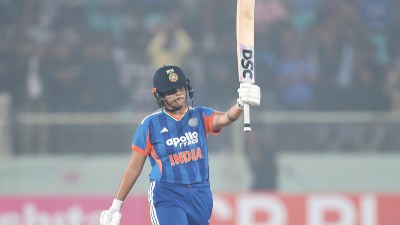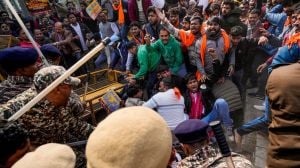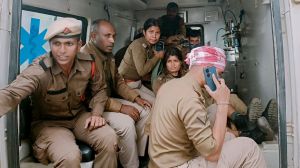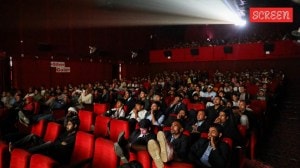It was here, in Yard No 1 of the egg-shaped high-security cell, that Saibaba spent a decade, convicted under sections of the Unlawful Activities Prevention Act (UAPA) for his alleged involvement in Maoist activities. Last month, the Bombay High Court acquitted the former Delhi University professor and five others after hearing their appeals on a 2017 order of the trial court in Maharashtra’s Gadchiroli district that convicted them, noting that the prosecution failed to prove its case. Later, the Supreme Court declined to stay the High Court judgment while observing, prima facie, that it was “very well-reasoned”. Now, weeks later, as Saibaba talks of that decade, he does so with little anger. “All human beings imagine hell. From Dante to Salman Rushdie, from European to Egyptian civilisations, everyone has their own idea of hell. The Anda cell was just that,” he says.

The UAPA case
Saibaba, an Assistant Professor of English at Delhi University’s Ram Lal Anand College, was arrested on May 9, 2014, six months after the Maharashtra Police conducted raids at his house on the university campus. He was accused of arranging a meeting of the other accused — JNU student Hem Mishra and Uttarakhand-based journalist Prashant Rahi — with members of the banned CPI (Maoist) and its alleged frontal organisation, the Revolutionary Democratic Front.
After three nights in police custody at Aheri in Gadchiroli, where the case was filed, Saibaba was sent to the Nagpur jail. Three years later, on March 7, 2017, the Gadchiroli court convicted Saibaba along with Mahesh Tirki, Hem Mishra, Pandu Narote, Prashant Rahi and Vijay Tirki. All of them were sentenced to life imprisonment except for Tirki, who got 10 years in jail.
“Except for bail periods that together lasted less than a year and a half, I have spent this past decade in the Anda Cell,” he says. Here, he would wake up every day at 6 am to the rattle of the prison guard running his baton over the iron bars of the cells. “You hear that from afar and then you can’t sleep anymore… That is something which I am still struggling to cope with everyday, even today,” he says.
 As word of the “teacher” in prison got around, other prisoners, and even the jail staff, came to him for classes in English and literacy. (Express Photo by Abhinav Saha)
As word of the “teacher” in prison got around, other prisoners, and even the jail staff, came to him for classes in English and literacy. (Express Photo by Abhinav Saha)
In the Anda Cell, there is usually only one inmate per cell, but prison authorities got two of Saibaba’s co-accused, Pandu Narote and Mahesh Tirki, to share the cell with him and help him out since he was confined to a wheelchair — a polio infection when he was five had left him paralysed waist down. “They were poor tribals who spoke Gondi. They were forced to look after me. Given my disability, I was given a cot and, as a concession, a table. If I swivelled my wheelchair around, there was the table and if I turned it back, the bed. A low cement wall separated the toilet from the rest of the cell, so my wheelchair wouldn’t go all the way to the toilet. Pandu and Mahesh had to carry me to the toilet and back every time I had to use it.”
Saibaba says he spent most of his time reading — the censored newspaper and the books that Vasantha brought him, of which he was allowed to keep only two at a time. Among these were a book of poems by Marathi Dalit writer Namdeo Dhasal that his daughter Manjeera sent, Tony Joseph’s ‘Early Indians’ and Shakespeare classics that he would have taught his students. He also wrote “hundreds of letters” – to Vasantha, his friends and students. All the letters, “50-60 pages at a time”, were sent to Vasantha, who would then send them onwards. Many of these were for Manjeera, with whom he would have discussions on Shakespeare, Indian English writing and so on. “She was barely 14-15 years old… she was in 10th grade when I was arrested. Like me, she went on to do English Literature and even went to the same college where I once taught. She would have been my student if I hadn’t been arrested,” he says.
Story continues below this ad
 Saibaba also wrote petitions for other inmates – letters seeking medical attention, bail applications and RTI requests to court. (Express Photo by Abhinav Saha)
Saibaba also wrote petitions for other inmates – letters seeking medical attention, bail applications and RTI requests to court. (Express Photo by Abhinav Saha)
As word of the “teacher” in prison got around, other prisoners, and even the jail staff, came to him for classes in English and literacy. “Some of the guards I taught even graduated from open university,” he says. Saibaba also wrote petitions for other inmates – letters seeking medical attention, bail applications and RTI requests to court.
And then, during Covid, the Anda Cell shrunk further. The “mulaqats (meetings)” stopped, so did the letters and newspapers. It was then that he found comfort in a book that Vasantha and his brother Ramadevudu had given when they visited him in jail in February 2020, days before the lockdown – Faiz Ahmed Faiz’s poetry collection translated from Urdu to English. “I read it again and again and again. I also learnt a bit of Urdu and translated the book into Telugu,” he says.
And in the long hours that he spent staring at the ceiling, he often asked himself: ‘Why me?’ “Since 2010, I had been raising my voice against mining in Adivasi areas. I am not saying minerals should not be exploited, but you can’t do that without coming up with an alternative plan for the tribals. In 2009, P Chidamabram as Home Minister had launched Operation Green Hunt and Adivasis were being targeted in the name of Maoists. In October 2010, a group of us set up the Forum Against War on the People, of which I was convenor. Soon, the matter garnered international attention… I received threats, but we refused to back down,” he says.
The lost years
The Sunday Express met Saibaba on March 21, at the AIIMS General Ward, where he was admitted in a separate room due to his disability, after his release from prison on March 7. A Master’s student from Delhi University was holding Saibaba’s medical reports while another from JNU accompanied him to get his tests done. “These are not the students who Sai taught, these are students who volunteered to help,” says Vasantha.
Story continues below this ad
An injury to the brachial plexus, a network of nerves that carry signals from the spinal cord to the arms and hands, has left Saibaba’s left arm immobile. “When I was being taken to the police station in Aheri, the constables handling my wheelchair couldn’t handle it and a wheel broke. While there was no intention to hurt, they dragged me by my arm and I fell off the wheelchair,” he says, adding that he was in searing pain for the next nine months. Following Vasantha’s petitions to the National Human Rights Commision and other rights groups, Saibaba was admitted to the Government Medical College in Nagpur, which recommended a nerve grafting procedure. “When I came back to Delhi and got admitted to AIIMS, I was told by the doctors that it was too late to get the procedure done,” he says.
Meanwhile, he suffered other complications — scoliosis (curvature of the spine to a side) and apical hypertrophic cardiomyopathy (thickening of the heart muscle) and pancreatitis, an inflammation of the pancreas that made it difficult for him to digest food. Besides the physical trauma, Saibaba’s arrest took a heavy toll on his family. “I was very close to my father and I missed him being around. I would write to dad, but it’s hard to convey everything through letters. It became especially hard after the Supreme Court stayed the Bombay High Court’s acquittal on October 14, 2022,” says Manjeera, now 26, who went on to do a Master’s from St Stephen’s College and an MPhil from Jamia Millia Islamia. She was referring to an earlier order by the Bombay High Court which ordered the acquittal saying the state did not follow procedural safeguards. This order, however, was stayed by the Supreme Court early last year.
Through all this, Vasantha, Saibaba’s childhood sweetheart whom he married in 1991, held up the family. His arrest was the first time the couple stayed apart for such a prolonged period, he says. “Vasantha had to manage everything on her own – the house, our daughter, my legal fight. Finances were a problem.” With the university suspending Saibaba three days after his arrest, the family had to make do with his salary that had been cut by half. “Vasantha had to sell our car and when the university terminated my services in March 2021, we had to move out of the campus. The house where we are staying now belongs to a retired IAS officer. When her mother was alive, Vasantha would borrow from her but she passed away during Covid,” he says, one of the only two times he breaks down during the conversation.
The second was when he spoke of his own mother. “A few months later, my mother died too. She visited me in jail two-three times. In August 2021, she was diagnosed with lymphocytic cancer and passed away. I called her one week before that and she kept saying, ‘I want to meet you’,” he says, his eyes welling up.
Story continues below this ad
There’s another loss he is struggling to deal with. “When they raided me, they took away my computer and pen drives, and with that, all the research I had done over the previous 20 years or so. What they returned is something else. All that’s gone. Three of my academic works were about to be published, including one of the ‘Language Question in India’ and the ‘History of 200 years of Indian Writing in English’. I have lost much more than the 10 years I spent in jail,” he says, adding with a smile, “I want to go back to teaching but who will hire me now?”
The Case
An English teacher at DU’s Ram Lal Anand College, Saibaba was accused of being linked to Maoists, and of arranging a meeting of a JNU student and a journalist with members of the CPI (Maoist) and its alleged front organisation, the Revolutionary Democratic Front
Other Accused
JNU student Hem Mishra and Uttarakhand-based journalist Prashant Rahi were the ones Saibaba was accused of connecting with Maoists. The other accused in the case – Pandu Narote (died in 2022), Mahesh Tirki, and Vijay Tirki – were accused of being Maoist couriers. They were arrested in 2013 and 2014.
Case Timeline
May 2014: Six months after Maharashtra Police conducted searches at his residence in Delhi, Saibaba was arrested
Story continues below this ad
June 2015: Granted bail by Bombay High Court taking his deteriorating health into consideration
December 2015: He is sent back to jail
April 2016: Supreme Court grants him bail, pulls up Maharashtra government for its insistence on keeping him behind bars
March 2017: Saibaba, Hem Mishra, Prashant Rahi, Mahesh Tirki and Pandu Narote are convicted under UAPA and handed a life sentence. Vijay Tirki is sentenced to 10 years.
October 14, 2022: After Saibaba’s appeal, Nagpur Bench of Bombay High Court acquits him and the other accused, and says there was no valid sanction for him to be prosecuted under UAPA.
Story continues below this ad
October 15, 2022: Supreme Court suspends the HC verdict, saying the HC had not gone into the merits of the case or “the seriousness and gravity of the offences for which the accused were convicted”
April 19, 2023: Supreme Court sets aside the HC verdict discharging the accused, and sent the matter back to the HC to be decided afresh by a different Bench
March 5, 2024: Nagpur Bench of Bombay High Court again acquits Saibaba and the other accused
March 7: Saibaba is released from jail

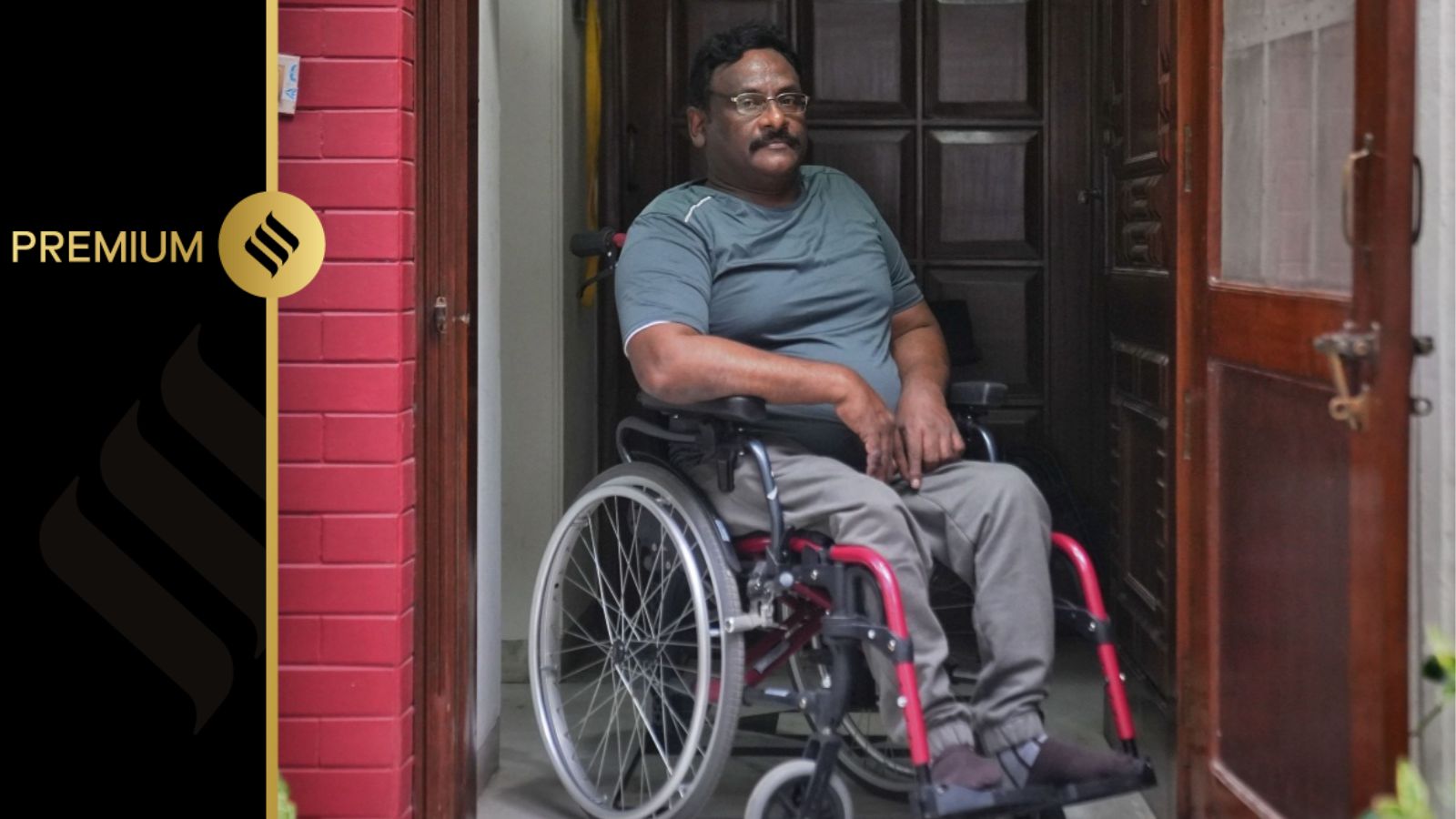

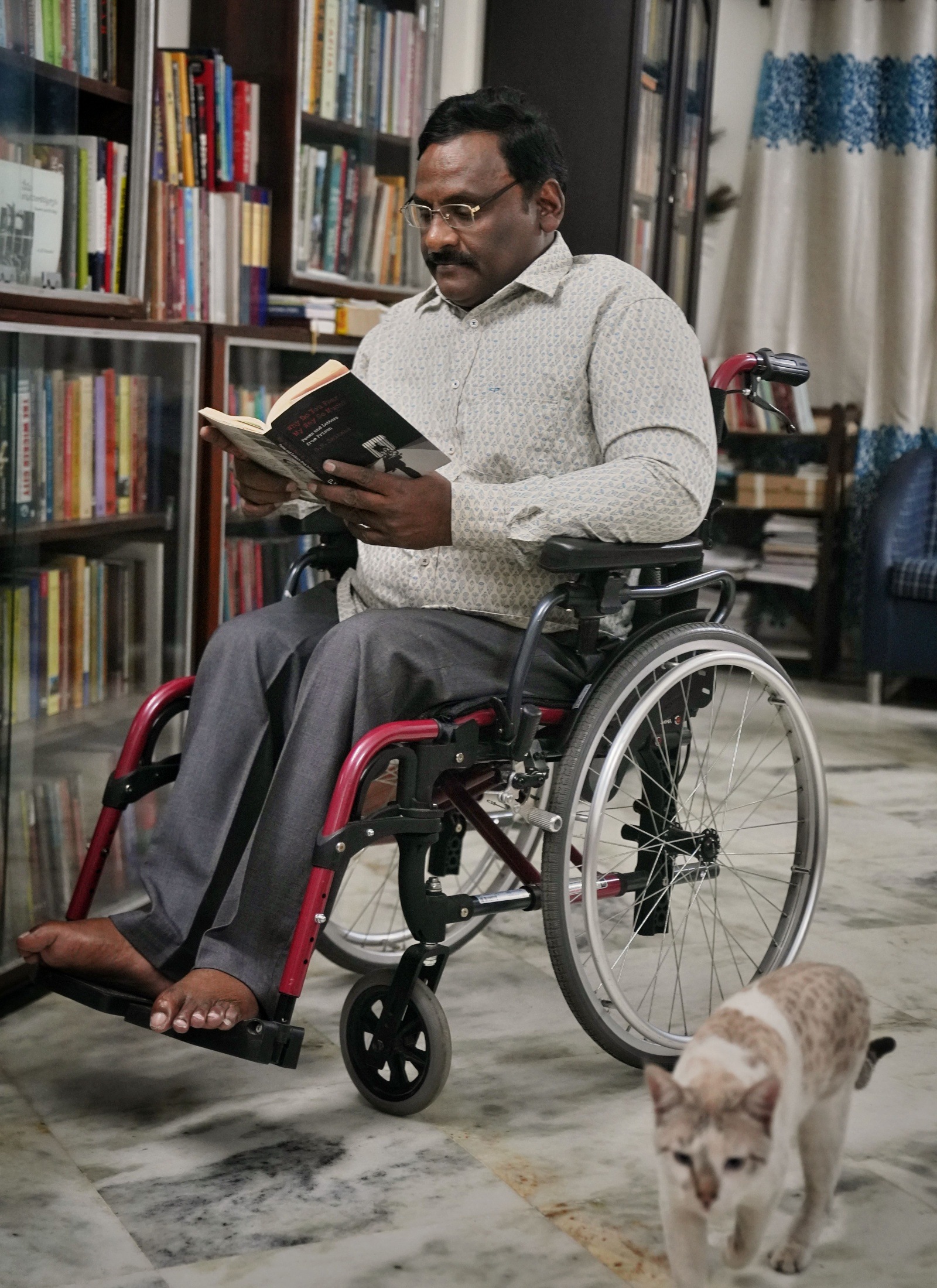 As word of the “teacher” in prison got around, other prisoners, and even the jail staff, came to him for classes in English and literacy. (Express Photo by Abhinav Saha)
As word of the “teacher” in prison got around, other prisoners, and even the jail staff, came to him for classes in English and literacy. (Express Photo by Abhinav Saha)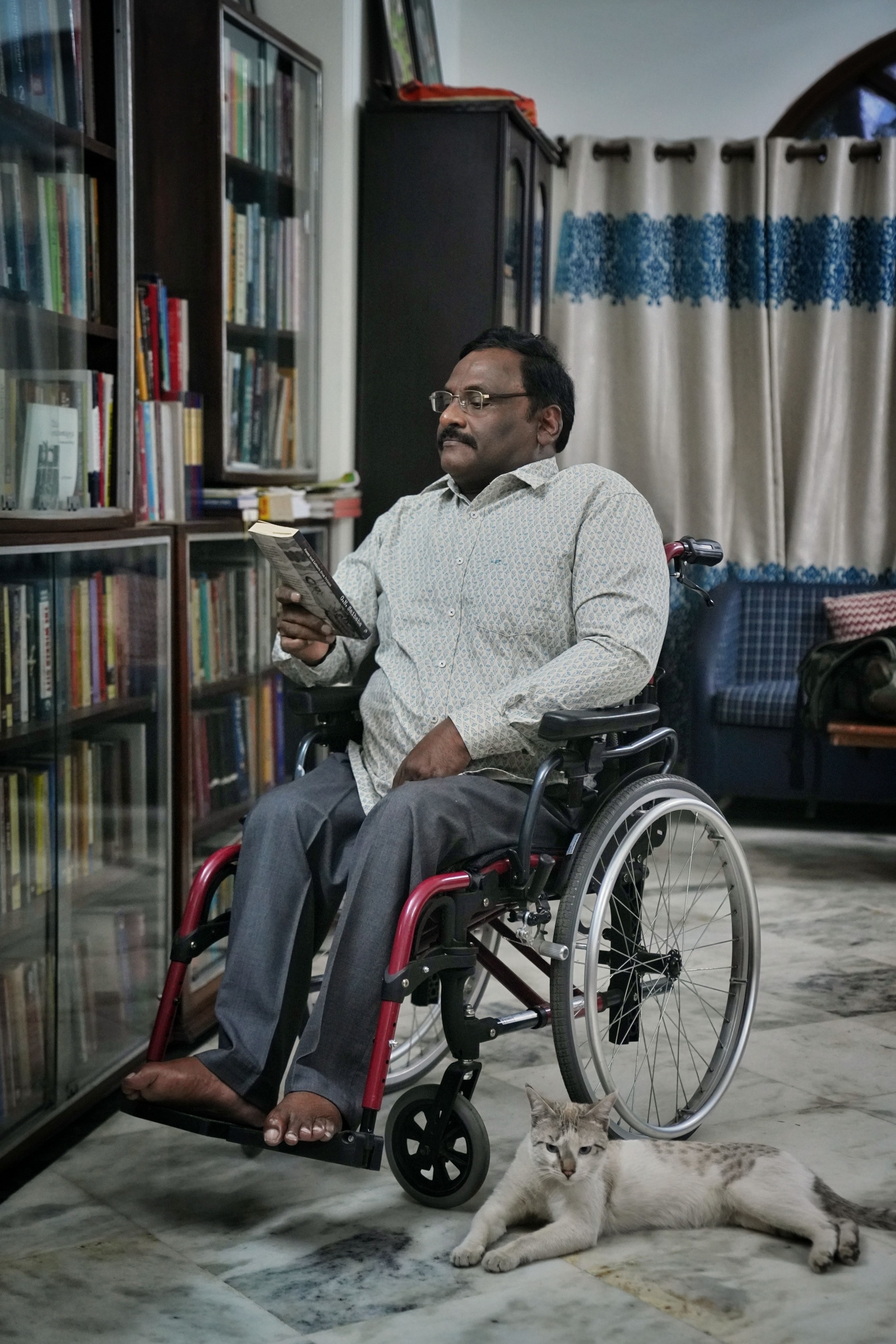 Saibaba also wrote petitions for other inmates – letters seeking medical attention, bail applications and RTI requests to court. (Express Photo by Abhinav Saha)
Saibaba also wrote petitions for other inmates – letters seeking medical attention, bail applications and RTI requests to court. (Express Photo by Abhinav Saha)
